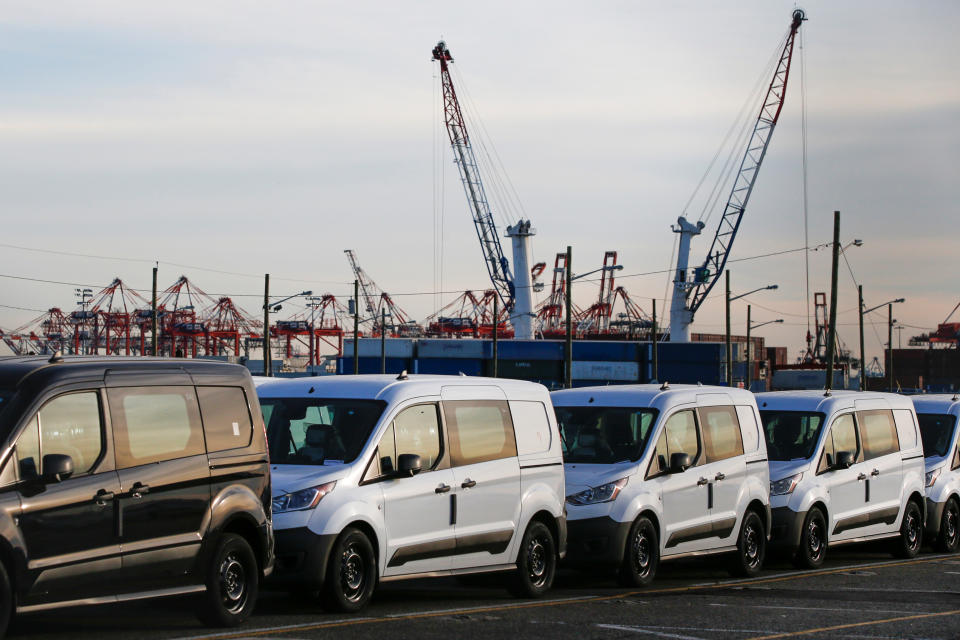How Trump's 'beautiful' tariffs are casting a shadow over trade policy
Barely a week ago, the U.S. narrowly averted another trade war with Mexico, by suspending a plan to impose new tariffs on a country with which it had just signed a new trade accord.
This week, India slapped surcharges of its own on $1.4 billion worth of U.S. goods, in retaliation to the Trump administration’s tariffs on steel and aluminum.
President Donald Trump’s sudden threat to its 2nd largest trading parter, combined with his general antipathy toward trade agreements and U.S.’s escalating trade war with China, have amplified fears that “tit-for-tat” tariffs will become the order of the day, even as the global economy slows down.
The Mexico tariff threat “was about the politics of immigration, not the economics of trade,” noted Todd Marino, an analyst at Eurasia Group. The quick resolution of the spat reflected the White House’s nervousness over the “economic downside” of yet another trade war, he said.
“However, while economic considerations clearly affect how forcefully Trump can wield the tariff weapon, they do not remove it from his arsenal,” Marino warned.
“This means that while Trump’s use of tariffs against Mexico will be hamstrung, that reality alone will not prevent him from again threatening Mexico, and there are numerous potential triggers ahead of Election Day 2020,” he added.
Economy watchers say the fight with Mexico was ominous for several reasons — not least of which involves the impact to businesses and consumers.
As the U.S. Trade Representative holds hearings on Monday over the next round of Chinese tariffs — worth another $300 billion — a slew of businesses are pressing the administration for exemptions.
A ‘beautiful’ weapon

The state of play underscores how Trump’s penchant for using tariffs as a weapon is creating the impression that the administration cannot be taken at its word when it comes to trade — even when a country signs on the dotted line of a deal.
Largely forgotten was a deal the U.S. struck with China barely a year ago, in which the world’s two largest economies mutually agreed to “substantially reduce” the bilateral trade deficit through the purchase of American goods. But the deal’s shelf life expired quickly as the Trump administration pressed ahead with tariffs.
Therein lies the rub for many of the U.S.’s bilateral trading partners, especially as Trump describes tariffs as a “beautiful” policy tool that he can deploy at will.
While Congress can find ways to lessen the blow, the imposition of tariffs are the exclusive domain of the executive branch, and can be implemented relatively quickly — with its effects far reaching.
It’s why Myron Brilliant, head of international affairs at the U.S. Chamber of Commerce, decried the “weaponization” of tariffs to extract trade and other concessions from major partners.
The president famously abandoned the Trans-Pacific Partnership, a decision that’s undermined U.S. farmers and complicated America’s efforts to strike a bilateral deal with Japan.
And as the U.S. dangles the possibility of a trade deal with the United Kingdom post-Brexit, it risks creating the impression of an American partner whose word can’t be trusted.
“There would be a trade deal on the table at some point,” said Seema Shah, senior global investment strategist at Principal Global Investors.
Yet she called the Mexico threat “a tipping point” that threw Trump’s negotiating style into stark relief for investors and trading partners. “Decades of global trade now seems like it’s going completely into reverse,” she added.
“What is a concern is how much confidence U.K. should take if US does offer a deal,” Shah asked. “With this administration is [a trade deal] really likely to have a benefit?”
As the world braces for potential for the U.S. to impose $300 billion worth of new tariffs on Chinese goods, Trump’s well-cultivated “Tariff Man” persona could weigh heavily on Sino-American negotiations, economists say.
....I am a Tariff Man. When people or countries come in to raid the great wealth of our Nation, I want them to pay for the privilege of doing so. It will always be the best way to max out our economic power. We are right now taking in $billions in Tariffs. MAKE AMERICA RICH AGAIN
— Donald J. Trump (@realDonaldTrump) December 4, 2018
In a research note last week, Nomura noted that “floating a proposal to impose new broad-based tariffs on a country that has just agreed to a comprehensive trade agreement seems risky,” analysts said.
“This could reinforce the impression, to Chinese policymakers, that Trump is not a reliable negotiating partner and that could limit China’s willingness to compromise.”
Javier is an editor for Yahoo Finance. Follow Javier on Twitter: @TeflonGeek
Read the latest financial and business news from Yahoo Finance
Read more:
Trump walks back Mexico tariffs, promises relief for 'patriot farmers'
Jim Chanos on Tesla: Cars are 'poorly made' — but you can't fire Elon Musk
Self-proclaimed Tesla bull says Q1 was one of the worst debacles he's seen in 20 years
US - China trade is just part of the 'most important geopolitical conflict of our time'
Follow Yahoo Finance on Twitter, Facebook, Instagram, Flipboard, SmartNews, LinkedIn, YouTube, and reddit.


